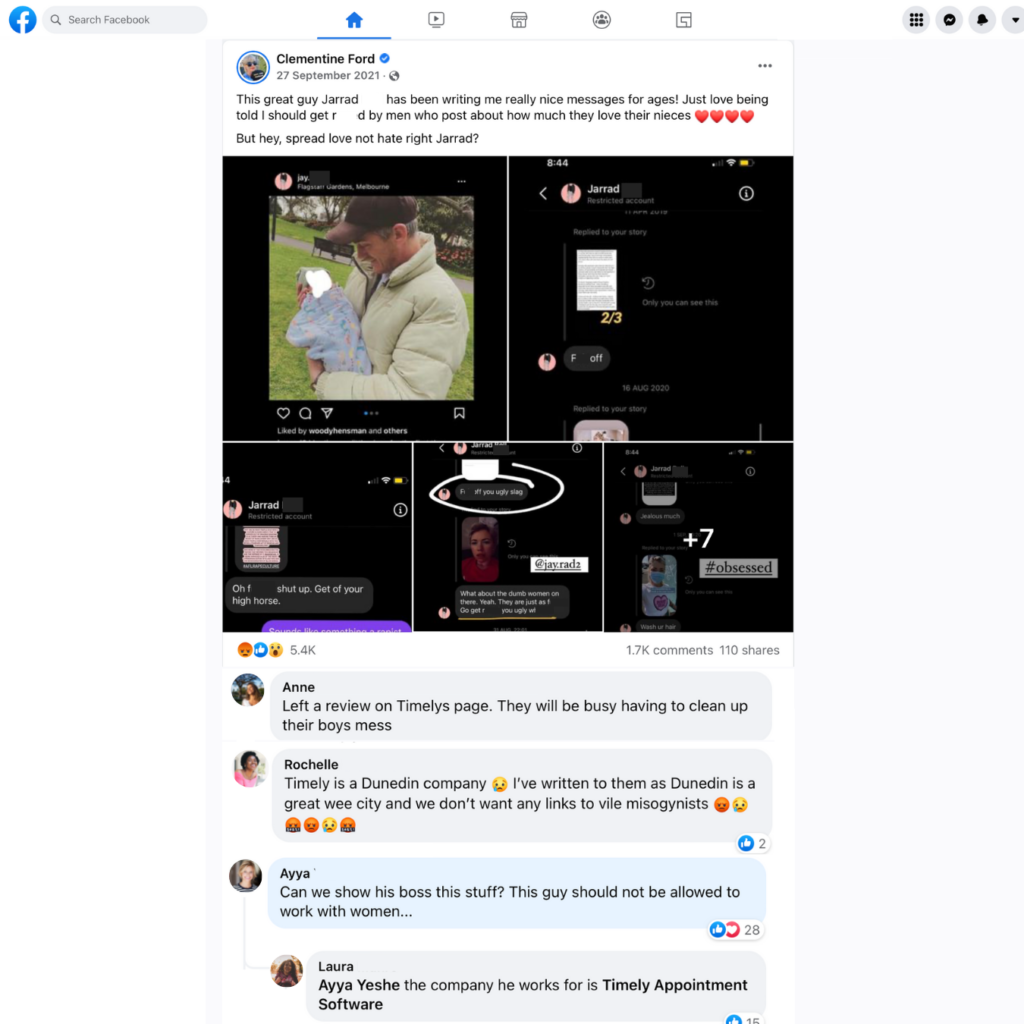In today’s digital age, almost everything we say or do online is available to a larger audience than ever before. As the number of people that feel comfortable sharing their views online has increased, so too has the occurrence of cancel culture.
No organisation, large or small, is immune to cancel culture. This is a lesson that New Zealand company Timely recently learnt when one of their employees was outed online after abusive messages they sent to a media personality came to light.
This blog post uses the recent Timely example to explore how organisations can protect themselves and when their employees are ‘cancelled’ online.
What is cancel culture?
Racist, sexist, and other discriminatory behaviours and comments aren’t tolerated by society as much as they once were, particularly online.
The collective movement of “cancel culture” happens when people express controversial viewpoints or behave in unacceptable ways online and others seek to hold the person accountable for their actions.
Sometimes this goes as far as petitioning their employer to take disciplinary action, whether the person in question has directly identified where they work on their profiles or not.
How are organisations experiencing cancel culture?
Organisations are increasingly finding themselves being held responsible for the online behaviour of their employees and face pressure to condemn their behaviour and take action against them.
If employers don’t take the appropriate action or choose to stand by their employees’ statements, this can lead to significant damage to their reputation.
According to the research, nearly two-thirds of consumers worldwide will buy or boycott a brand based solely on their position on a social or political issue. This can severely affect everything from their ability to attract and retain talent to a potential loss of revenue, customers and industry partnerships.
Organisations that have recently found themselves on the receiving end of cancel culture due to the actions of their employees include Estee Lauder, the Royal Melbourne Hospital, Conde Nast and Timely.
Timely’s experience with cancel culture
Shockingly, one in three Australian women have experienced online abuse in a work context.
As a feminist writer, public speaker and media personality, Clementine Ford is one woman who is no stranger to receiving online abuse. Due to the nature of her work, the comments and messages she receives are often sexist and sometimes violent.
In late 2021, Clementine posted on Facebook about a Timely employee who had been sending her abusive messages. The post, which included screenshots of his messages, was shared on the platform over 110 times and gained close to 2,000 comments.
In many of the comments, people mentioned the ways they were putting pressure on Timely to take action against their employee. This included online reviews of Timely, messages they’d sent the company and their responses and even people tagging Timely’s Facebook account on the post.

Clementine posted about the abuse she received from the Timely employee and her followers sought to hold him accountable through his employer.
A few days after the post was made, the Senior Vice President of Timely responded with a comment on the post with a well thought out video response in regards to the employee’s behaviour.
Timely handled the incident incredibly well and took action that was in line with their organisational values and policies.
However, how can they (and all organisations) proactively avoid such incidences in the future?
Avoid the fallout from cancel culture by hiring the right people
Australian research has found that greater action by employers is needed to prevent online abuse.
All employers should be actively preventing hiring employees who display sexism and other inappropriate behaviour, not only to protect their own reputation but to protect their workforce and wider community.
They can do this by stopping these behaviours from entering their workplaces in the first place.
How digital footprints can help avoid cancel culture
Digital footprint checks are revolutionising the hiring process in a way that helps organisations stop racism, sexism and other forms of discrimination from entering their workplace.
Digital footprint checks highlight any red flags in your candidates’ online activity, whether it’s on social media, forums, the Dark Web, news stories and more, and will pick up:
- Discriminatory behaviours: such as sexism, racism, homophobia and hate speech
- Unprofessional behaviours: such as strong language, bad-mouthing employers or coworkers and online bullying
- Criminal behaviours: such as violence, fraud and cybercrime
Timely can easily take steps towards preventing similar incidences from occurring in the future. With digital footprint checks in place, this employee would most likely not have been hired, as it’s likely that similar behaviours would be flagged during a pre-employment check.
Cancel culture will continue to exist in our digital society, but the good news is that organisations can actively protect themselves from being affected by it, with digital footprint checks.
Download a free sample report
To get an example of what a digital footprint check looks like, the information they include and the types of content they flag, you can download a free sample report.
The 23-page sample includes:
- A Candidate Risk Score and Cultural Fit Assessment
- An outline of our cultural fit indicators
- Examples of content that indicate discriminatory, unprofessional and criminal behaviours
- Examples of other candidate insights
